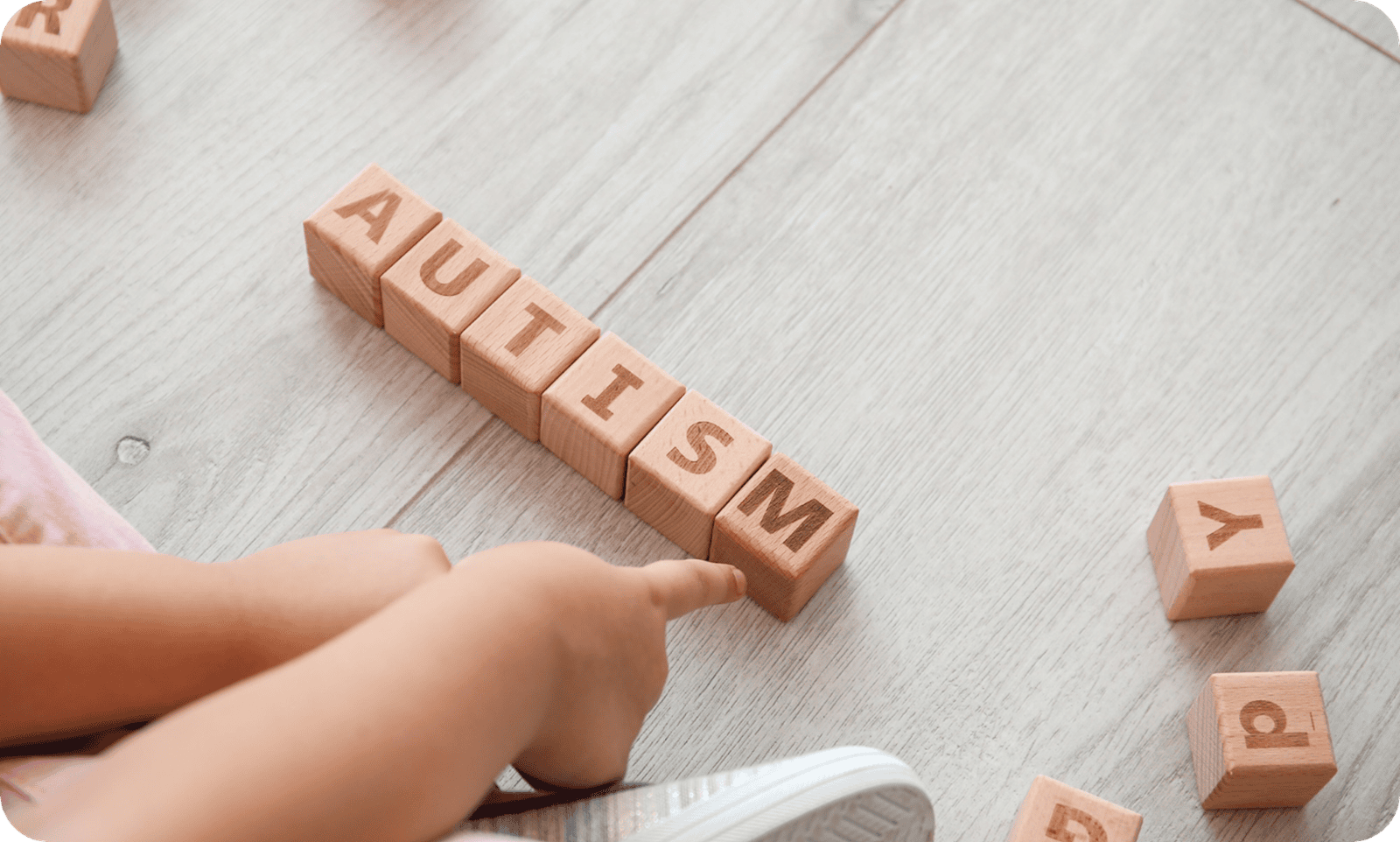Embracing Autism with Understanding and Acceptance
Autism is not a puzzle to be solved—it’s a unique way of experiencing the world.
Speech Therapy

What is Autism ?
Autism, or Autism Spectrum Disorder (ASD), is a neurodevelopmental condition that affects social communication, sensory processing, and behavior. Each autistic individual has a distinct way of interacting with their environment, and no two experiences are the same. While some may have strong verbal skills, others might rely on alternative means of communication such as Augmentative and Alternative Communication (AAC).
Common Signs of Autism
Autism presents differently in every individual, but some common traits include:
- Differences in Communication: Delayed speech development, echolalia (repeating phrases), or unique ways of expressing thoughts.
- Social Interaction Challenges: Difficulty with eye contact, understanding social cues, or preferring solitary play.
- Sensory Sensitivities: Heightened or reduced responses to sounds, textures, lights, or movement.
- Repetitive Behaviors and Interests: Engaging in routines, hand-flapping, lining up objects, or having deep interests in specific topics.
Supporting Autistic Individuals
Creating an inclusive and supportive environment for autistic individuals involves:
- Repetitive Behaviors and Interests: Engaging in routines, hand-flapping, lining up objects, or having deep interests in specific topics.
- Improving Social Interaction: Understanding and respecting different ways of engaging with the world.
- Addressing Sensory and Feeding Needs: Recognizing sensory sensitivities and adapting environments to reduce discomfort.
Moving Beyond Awareness to Acceptance
True awareness goes beyond recognizing autism—it requires acceptance and advocacy. Instead of focusing on "fixing" differences, let’s create spaces where autistic individuals feel valued and supported. By embracing diverse communication styles and sensory needs, we can foster a world that is truly inclusive.
Check Out More Articles

Therapies
Personalized ABA Therapy
Building Skills, reducing Challenges, and fostering growth.

Therapies
Breaking the silence
Early Support, Lifelong Confidence- Empowering Children to Communicate with Clarity!

ABA Therapy
Fostering Eye Contact Naturally
Increasing eye contact with your child is a great way to build connection, trust, and communication.





